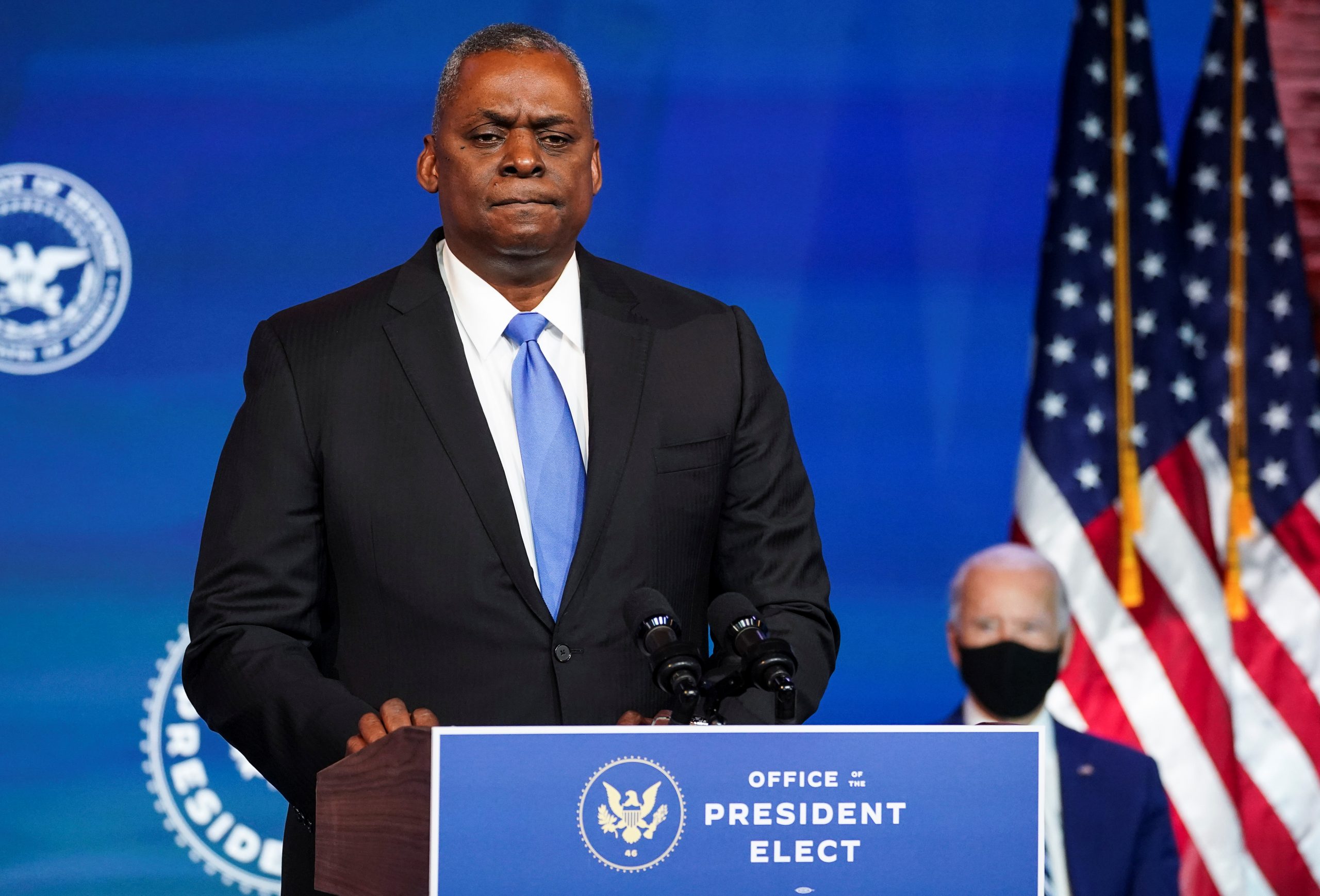President-elect Joe Biden said it was the “right moment” in U.S. history for his nominee for defense secretary, retired Army General Lloyd Austin, despite some concerns about the recently out-of-uniform soldier taking on the civilian role.
The choice of Austin, who if confirmed would be the first Black U.S. secretary of defense, requires both houses of Congress to waive a law requiring the military’s top brass to have been out of the armed forces for at least seven years before running the Pentagon. Austin, 67, retired in 2016.
In announcing his pick in Wilmington, Delaware, Biden called Austin “the right person for this job at the right moment.”
“I would not be asking for this exception if I did not believe this moment in our history didn’t call for it – does call for it – and if I didn’t have the faith I have in Lloyd Austin,” the Democrat said.
Biden has pledged to name a Cabinet that reflects America’s diversity and his nominees so far have included several firsts, including Janet Yellen, who would be the nation’s first woman Treasury secretary, and Alejandro Mayorkas, who would be the first immigrant to run the Department of Homeland Security.
At least two Democratic U.S. senators say they would oppose giving Austin a waiver, which was last issued for President Donald Trump’s first defense secretary, retired Marine General Jim Mattis.
The Democratic chairman of the House of Representatives Armed Services Committee, Adam Smith, said while he had concerns about issuing another waiver, he did not reject Biden’s choice.
Austin should meet with members of the House committee “so they can ask questions about civilian control of the military, and … be assured that General Austin is committed to this important principle,” Smith said in a statement late on Tuesday.
Austin has built a reputation as an intensely private man who avoided the spotlight during a distinguished four-decade career in uniform, including a stint as head of the military’s Central Command, which oversees U.S. troops across the Middle East.
Biden, who takes office Jan. 20, will nominate former Iowa governor Tom Vilsack as agriculture secretary, according to two sources familiar with the decision. Vilsack held the same role during the Obama administration.
He also plans to nominate Marcia Fudge, a Black congresswoman from Ohio, as his housing and urban development secretary, according to news reports.
IT’S THE PANDEMIC AND THE ECONOMY
Biden is likely to spend much of his first few months focused on the coronavirus pandemic and the struggling economy.
Senate Democratic leader Chuck Schumer met four members of Biden’s economic team, including Yellen and Office of Management and Budget director nominee Neera Tanden, on Wednesday and said he wanted to see commitment from them to more COVID-19 relief.
“We need a large, bold program to stimulate the economy, help people out of the conditions they’re in, but keep the economy going for a long period of time, and I am committed to working with you,” Schumer said, according to a transcript.
The other nominees at the meeting were Wally Adeyemo for deputy Treasury secretary and Celia Rouse, who would chair the Council of Economic Advisers.
Biden vowed on Tuesday to distribute 100 million coronavirus vaccines in his first 100 days and to make reopening schools a “national priority.” He again implored Americans to wear masks to slow the spread of the virus.
Biden’s health and human services secretary nominee, California Attorney General Xavier Becerra, will help oversee the government’s response to the pandemic, which has killed more than 286,000 in the United States.
Trump has not conceded the Nov. 3 election, claiming contrary to evidence that there was widespread electoral fraud.
The state of Texas has filed a petition with the U.S. Supreme Court challenging the election outcome in four other states, a lawsuit that legal experts said had little chance of success.
On Tuesday, the nation’s highest court refused to block Pennsylvania from formalizing Biden’s victory there, rejecting a request to hear an argument that the state’s 2019 expansion of mail-in voting was illegal.
(Reporting by Simon Lewis in Wilmington, Delaware, and Joseph Ax in Princeton, New Jersey; additional reporting by Patricia Zengerle, Philip Stewart, Jarrett Renshaw and David Morgan in Washington; Writing by Sonya Hepinstall; Editing by Scott Malone and Alistair Bell)

























 Continue with Google
Continue with Google